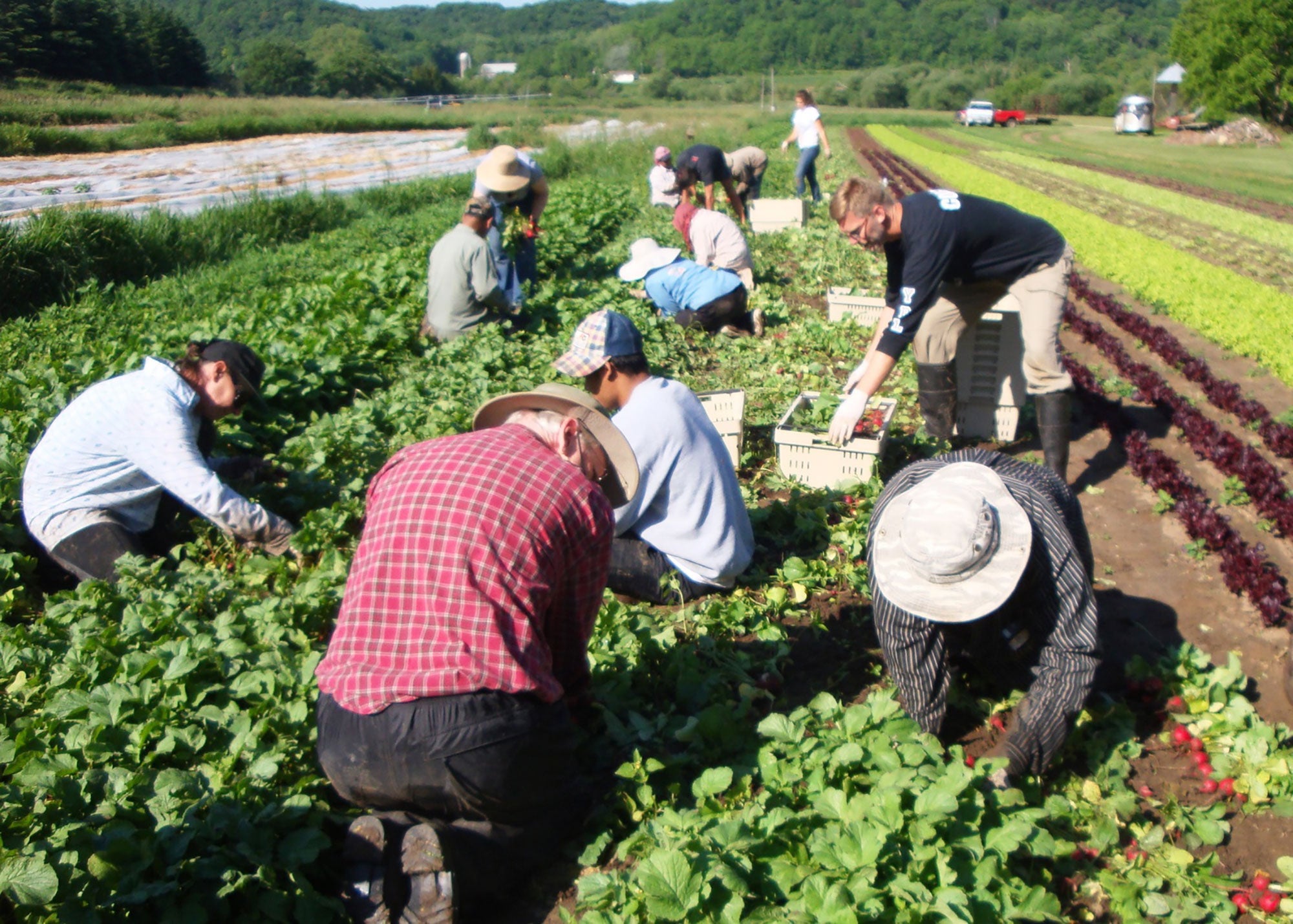List Of Pesticides Approved For Organic Farming
Its not commonly used in cereal grain crops. Approved Inputs For Organic Farms Certified organic farmers are required to use only certified approved inputs or other inputs allowed by their certification body and the EU organic regulation.

Mythbusting Gone Wrong How The Dangerous Organic Pesticide Myth Began Genetic Literacy Project
Its mainly used to.

List of pesticides approved for organic farming. The Soil Associations Approved and Verified Inputs scheme exists to assure that an input such as fertiliser or composts complies with the Soil Association standards and EU organic regulations. However it may be used by many home gardeners so its worth knowing the difference between these often confused substances. Spearmint oil citronella quartz sand and others are not associated with any toxicity issues.
Some states like Colorado and Kentucky have already published their own set of approved pesticides for hemp cultivation. This including sulfates carbonates oxides and silicates of copper zinc manganese cobalt iron and selenium. This is as a result of their intrinsic nature or the method in which they are used.
Active substance Uses and restrictions Azadirachtin extracted from Azadirachta indica Neem tree Insecticide Beeswax Pruning agent Gelatine Insecticide Hydrolysed proteins Attractant only in authorized applications in combination. There are many naturally occurring pesticides that are allowed in organic farming as they have low toxicity such as spearmint oil citronella and quartz sand. This powder is commonly used to play carom has many uses in gardening.
Organic farmers are only allowed to use biological or botanical pesticides such as neem- and citrus-based materials and synthetic materials included on the National List of Allowed and Prohibited Substances. Both can be applied as a spray dissolved in water or powder preventively and directly to the crops where the substances restrain the growth of the spores of fungi. BORIC ACID AND BORAX.
As an anti-fungal it can be used in the. Examples of biopesticides Some of the more frequently used biopesticides for protecting crops in the industrial field of organic farming are different compounds of copper and sulfur. Materials on the National List are evaluated by the National Organic Standards Board which recommends addition and removal of materials based on criteria including lack of a natural alternative.
The National List of Allowed and Prohibited Substances identifies the synthetic substances that may be used and the nonsynthetic natural substances that may not be used in organic crop and livestock production. The National List of Allowed and Prohibited Substancesa component of the organic standardslists the exceptions to this basic rule. USDA APPROVED ORGANIC PESTICIDES FOR ORGANIC FARMING 1.
It is often claimed that organic farming is chemical-free and good for the environment. Organic farmers may use pyrethrins as an insecticide for fruit and vegetable crops. This is used both as a fertilizer as well as a fungicide.
These include neem oil diatomaceous earth and pepper. By contrast there are some 900 synthetic pesticides approved for use in conventional farming. It also identifies a limited number of non-organic substances that may be used in or on processed organic products.
These include alcohols copper sulfate and hydrogen peroxide. Organic standards are designed to allow natural substances in organic farming while prohibiting synthetic substances. Of the 28 approved pesticides used in organic agriculture the majority are of low toxicological concern to consumers or the environment.
Pyrethrum pyrethrins and pyrethroids. This is the second installment of the Organic 101 series that explores different aspects of the USDA organic regulations. This rule adds elemental sulfur for use as a molluscicide in organic crop production adds polyoxin D zinc salt to control fungal diseases in organic crop production and reclassifies magnesium chloride from an allowed synthetic to an allowed nonsynthetic ingredient in organic handling.
A common pseudoscientific claim made by proponents of organic farming is that organic farming does not use pesticides. Notably all of the pesticides except the General Hydroponics biopesticide with soybean oil garlic oil and capsicum oleoresin extract EPA Registration Number 91865-1 are approved for organic growing. Meanwhile states like Florida and California have opted to make.
List of active substances approved for use in EU organic agriculture under EU Regulation EC No 8892008. Others such as iron potassium beeswax and gelatine are all part of the human diet and have no toxicological issues. There are also many natural-based substances used as pesticides that are allowed in organic farming.

Best Organic Pesticides For Organic Farming Usda Approved Fungicides Organic Vegetables Organic Vegetable Garden Organic Pesticide

The List Of Organic Pesticides Approved By The Usda Agdaily

Trespassing Organic Farming Organic Food Online Eating Organic
